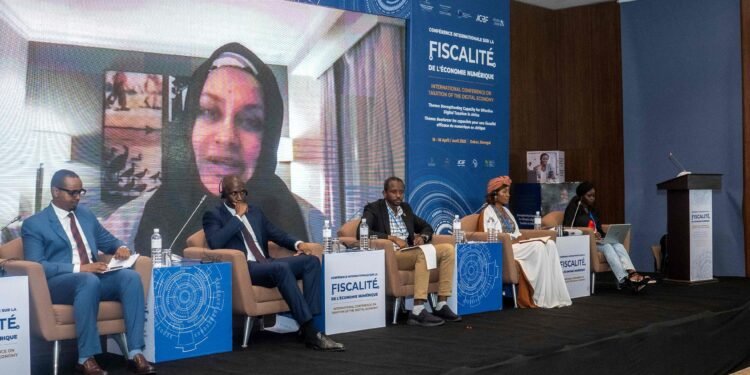Dakar, Senegal (BG) – African leaders concluded a high-level conference in Dakar on Wednesday with the launch of a regional training programme and the adoption of a joint resolution aimed at strengthening digital tax systems across the continent.
The International Conference on Taxation of the Digital Economy in Africa, convened by the African Capacity Building Foundation (ACBF) with support from the Government of Senegal and Finland, brought together policymakers, regional institutions and civil society actors to address the challenge of taxing cross-border digital activities and securing domestic revenues.
One of the key outcomes was the official launch of the BETA programme (Building Excellence in Taxation and Administration), a continent-wide initiative to boost human and institutional capacity in African Union member states.
Hosted on the Ubora Academy platform (www.uboraacademy.africa), BETA offers training through courses, webinars, and podcasts covering digital taxation, fiscal governance, and economic research.
ACBF Executive Secretary Mamadou Biteye underlined the need for a collective strategy.
“There is a pressing need to develop a common approach and position on the taxation of the digital economy to strengthen Africa’s advocacy for equitable taxing rights,” he said.
The final resolution, presented during the closing session, reflects recommendations from six technical panels.
It calls for harmonizing digital tax policies, better coordination between national administrations, and integrating digital payment systems and data-sharing tools to curb revenue losses.
Throughout the two-day event held from April 15 to 16, participants emphasized the urgency of adapting tax systems to keep pace with the continent’s rapidly evolving digital economy.
Many cited fragmented regulations, capacity gaps, and the dominance of foreign digital platforms as key obstacles to effective taxation.
Discussions also emphasized the need for African-led solutions rooted in local contexts, along with enhanced regional cooperation to close loopholes, limit tax avoidance, and secure long-term financial sovereignty.
Delegates from African Union institutions, finance ministries and international partners pledged to continue working together to develop practical tools, align policy positions, and build momentum toward a shared digital taxation framework.
Patrick Olomo, Head of Economic Policy and Sustainable Development at the African Union Commission, concluded with a powerful reminder of the continent’s shared vision.
He called on African nations to sustain the momentum by speaking with one voice, developing a monitoring framework, and engaging meaningfully in global tax reform negotiations.
In the closing session, Timo Voipio, Senior Advisor from Finland’s Ministry of Foreign Affairs, praised the determination of African institutions to develop inclusive and transparent tax systems.
He highlighted the role of data exchange, monitoring frameworks, and continued collaboration with global partners to address illicit financial flows and promote accountability.
Representing Senegal’s Ministry of Finance, Cheikh Mouhamed Hady Dieye officially closed the conference by reaffirming the country’s commitment to fiscal innovation and regional cooperation.
He described the event as a crucial step toward strengthening Africa’s fiscal sovereignty and ensuring that digital revenues contribute meaningfully to national development.
The Dakar conference marks a pivotal step in shaping a unified African voice in global tax reform—one grounded in regional priorities and backed by sustained capacity-building efforts.




